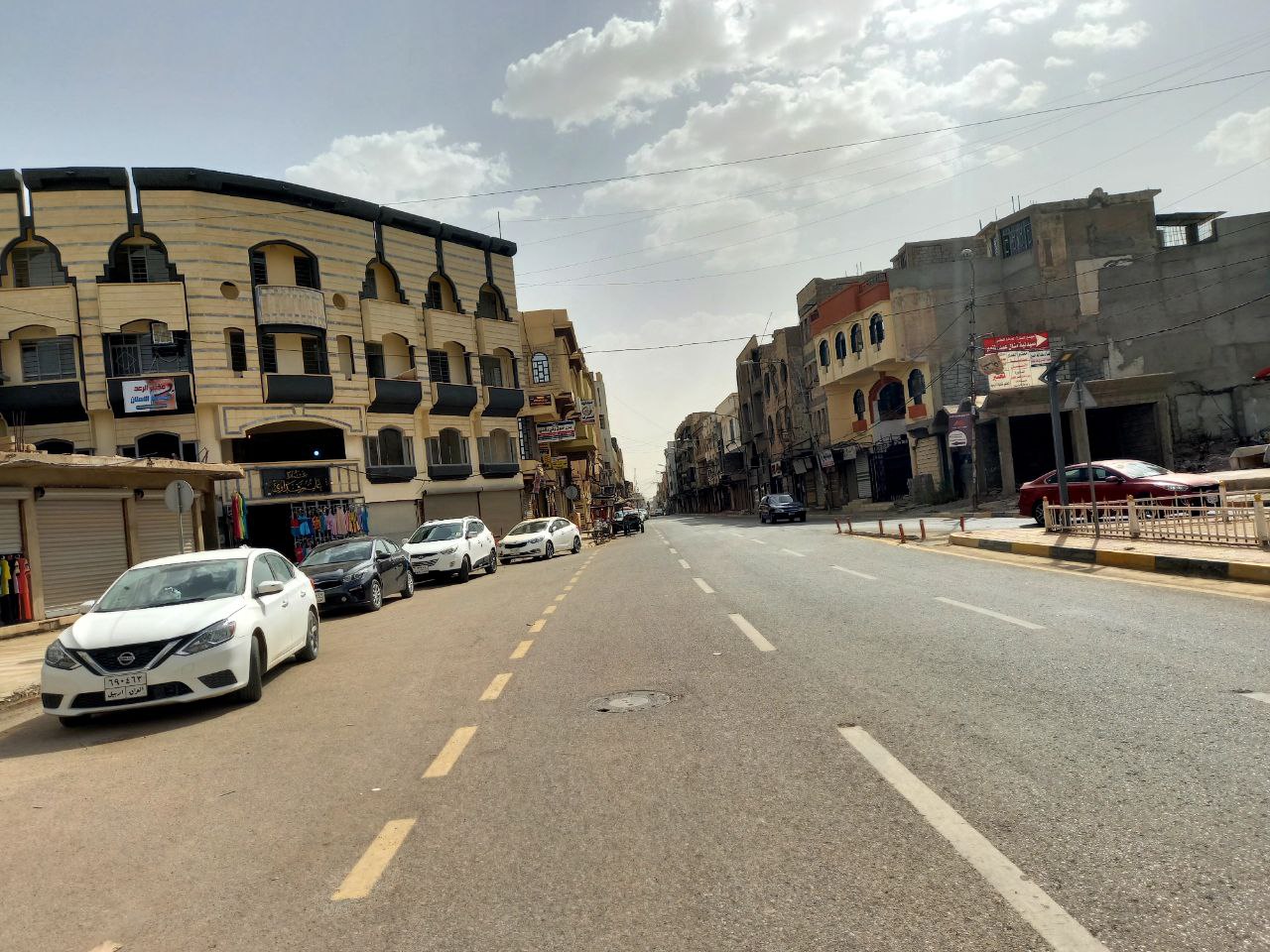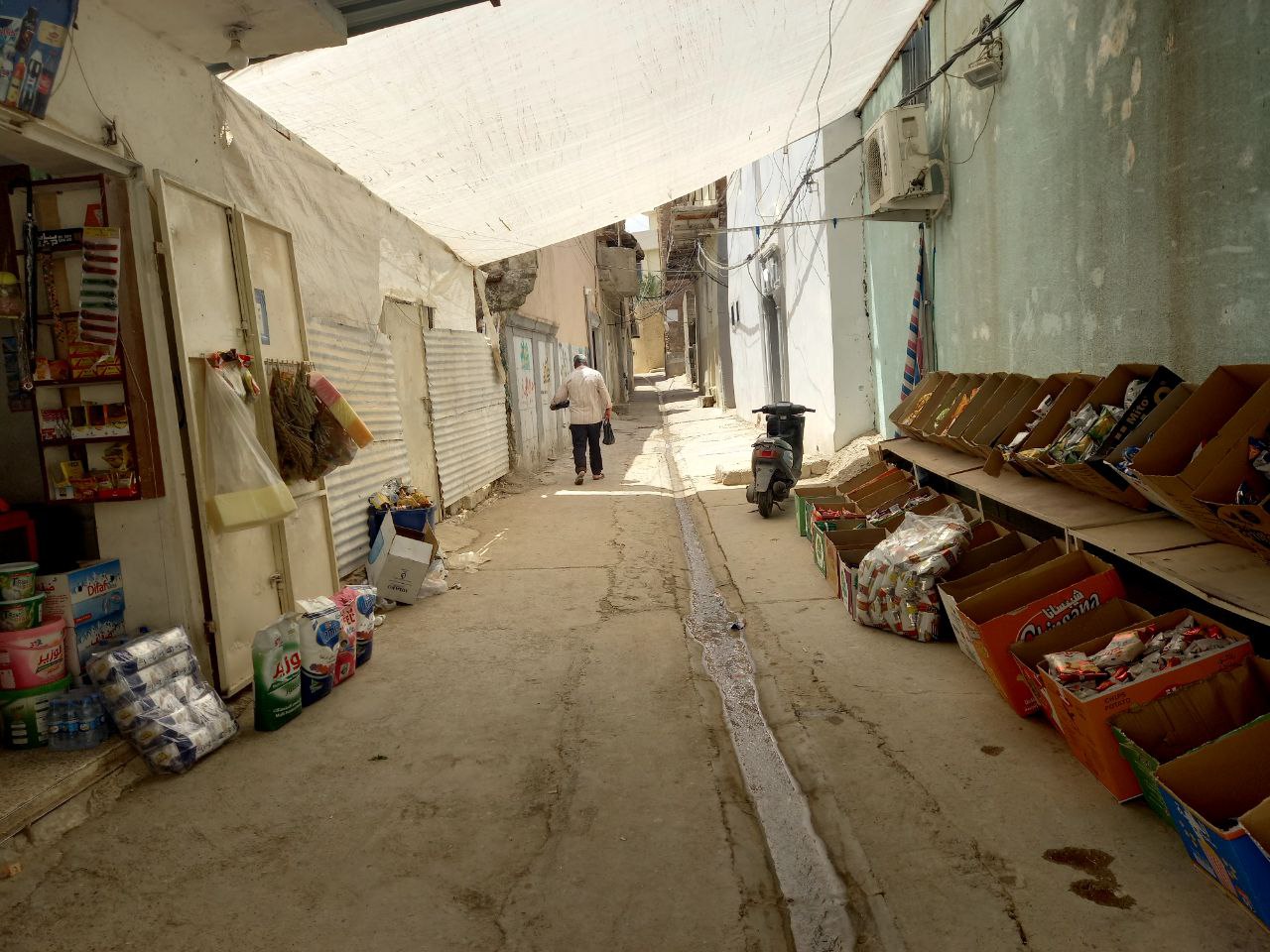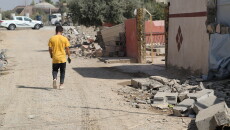Residents of Nineveh province are pleased with the Iraqi Council of Ministers' decision to register their illegal houses, although they are anxious about the registration expenses. Some fear that the process could impact the region's stability and hinder the return of the displaced, of whom 137,000 are still in camps for the internally displaced persons IDP.
The Iraqi Council of Ministers decided on January 13 to register all excess houses in Iraqi provinces, excluding Kirkuk and the Kurdistan Region of Iraq KRI.
"We are pleased with the decision. We will have ownership of our homes, but it is crucial that the cost of cadastral registration is affordable for the local residents," said Jihad Saeed, a resident of the Bashiqa sub-district center.
Most of Nineveh province has been under the rule of the Islamic State of Iraq and the Levant ISIL for over three years, resulting in displacement of its inhabitants. Thousands of Nineveh people are still living under tents in the IDP camps of Duhok Northern Province.
Saeed 's house, measuring 240 meters, was constructed on municipal land in the center of Bashik.
"If the registration cost is too high, we won't be able to afford it," he expressed.
If the registration cost is too high, we won't be able to afford it
Bashiqa is a district affiliated with Mosul, center of Nineveh Province, (12 kilometers northeast of the city of Mosul). Its population ranges between 150,000 and 160,000 people, according to the district administration. Its population consists of Shabak, Ezidis (Yazidis), Christians, Kurds, and Arabs. It is the second largest sub-district of Nineveh in terms of number population.There are no official figures on the number of excess houses in Nineveh province, but it is anticipated that the construction of such houses has increased with the return of IDPs and the end of ISIL control.
For instance, numerous excess houses have been built on municipal property in Shingal (Sinjar), Sinuny, and Gruzer. Almost 75% of houses in those owns have no title of deed, Shingal municipality says.
"We have not yet received the new decision from the Council of Ministers, and no committee from the Nineveh municipality has visited us, so we have not taken any action," stated Kamal Shro, director of the Shingal municipality office.
According to the Kirkuk administration's statistics, the province ranks third after Baghdad and Basra in terms of the number of illegal houses, with 130,000 illegal houses in Baghdad and over 90,000 in Basra.

Nevertheless, he acknowledged the importance of the process and emphasized that it would promote stability and encourage IDPs to return home.
According to the latest statistics from the Ministry of Interior of the Kurdistan Regional Government KRG, 137,616 IDPs, predominantly Ezidis (Yazidis), are still residing in IDPs camps of KRI, comprising 27,069 families.
Ghazwan Dawoodi, the mayor of Bashik sub-district, informed KirkukNow that 70% of houses in Bashik lack cadastral registration, with many being built in excess on government property.
70% of houses in Bashik lack cadastral registration
"The encroached land belongs to the municipality, meaning it must be repurchased during cadastral registration... but this will be handled by a special committee," he explained.
Overall, the registration of excess houses in the Nineveh Plain has been halted since 2003, making the process challenging and time-consuming.
"We are aware of the decision, but we have not received any information yet... People need to understand that these houses are on municipal property, and the municipality will charge fees for cadastral registration accordingly," Rafaat Simo, assistant of Ninewa governor for administrative affairs, informed KirkukNow.
"The fees vary depending on the location, with some reaching up to 150 million dinars (USD100,000) in places like the center of Mosul."
It is not determined if people have to pay the fees cash in one payment or installments.
"A committee will determine all of this... The goal of the decision is to reorganize the city center, districts, and sub-districts, and resolve issues with houses lacking title deeds," he concluded.






